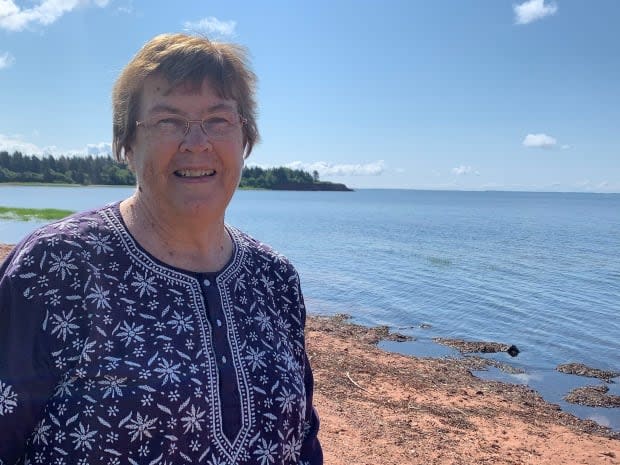A wing and a prayer: More great cormorants nesting on P.E.I.

P.E.I. fish and wildlife officials are seeing an increase in the number of great cormorants on the Island this year, and while numbers still aren't back to what they once were they say it's a step in the right direction.
For years, great cormorants nested on the red cliffs across Prince Edward Island.
Sometimes, there were close to 1,400 of them — but that was decades ago and since then the population has collapsed twice.
"It fell off pretty sharply," said Garry Gregory, a wildlife biologist with P.E.I's fish and wildlife division of the Department of Environment.
"We can speculate on why that may have happened."
This bird is really in danger of disappearing from P.E.I. and you know that would be a terrible thing to happen. — Rosemary Curley, Nature P.E.I.
The first drop in numbers occurred in the early '90s, according to Gregory.
He said some think it was associated with a hunting season that was implemented to control double-crested cormorants — a different bird, but one that looks similar to the great cormorant.
"It's thought that some great cormorants were accidentally or incidentally harvested in association with that hunt," he said.
"So that hunt was closed really quickly after that was realized."
The second drop remains a mystery, said Gregory, but for one reason or another, numbers plummeted.
'A prehistoric-type looking bird'
The president of Nature P.E.I., said the decrease could have something to do with how the bird was being treated.
"There's always been a bit of harassment around cormorants' colonies because, you know, people who like fish think that they shouldn't share the fish with birds that eat fish," said Rosemary Curley.
"It's a prehistoric-type looking bird, black and in breeding plumage, the adults have a white spot on the flank and they're quite large."

For the past few years, fish and wildlife have counted between 106 and 130 nests. This June, there was a slight uptick with 235 great cormorant nests.
"It's nice that it got back that high," said Curley.
"It's a good sign. And if it continued, I mean, that would be wonderful."
'Certainly encouraging'
While the news is optimistic, both Gregory and Curley agreed it's still too soon to tell if its population is increasing on the Island permanently.
"We'd want to kind of see that number increase on an upward trend or at least hold stable for several years before we could confidently say that numbers are rebounding," said Gregory.
"But it's certainly encouraging to see any increase or movement in the positive direction."

Curley said she doesn't anticipate the Island will see numbers in that 1,400 range anytime soon.
So for now, she's asking Islanders to respect the bird and its habitat so it doesn't vanish from those red cliffs entirely.
"This bird is really in danger of disappearing from P.E.I. and you know that would be a terrible thing to happen," Curley said.
"It's made a comeback but in P.E.I. the story is not complete so we want it to get better."
More from CBC P.E.I.

 Yahoo Finance
Yahoo Finance 